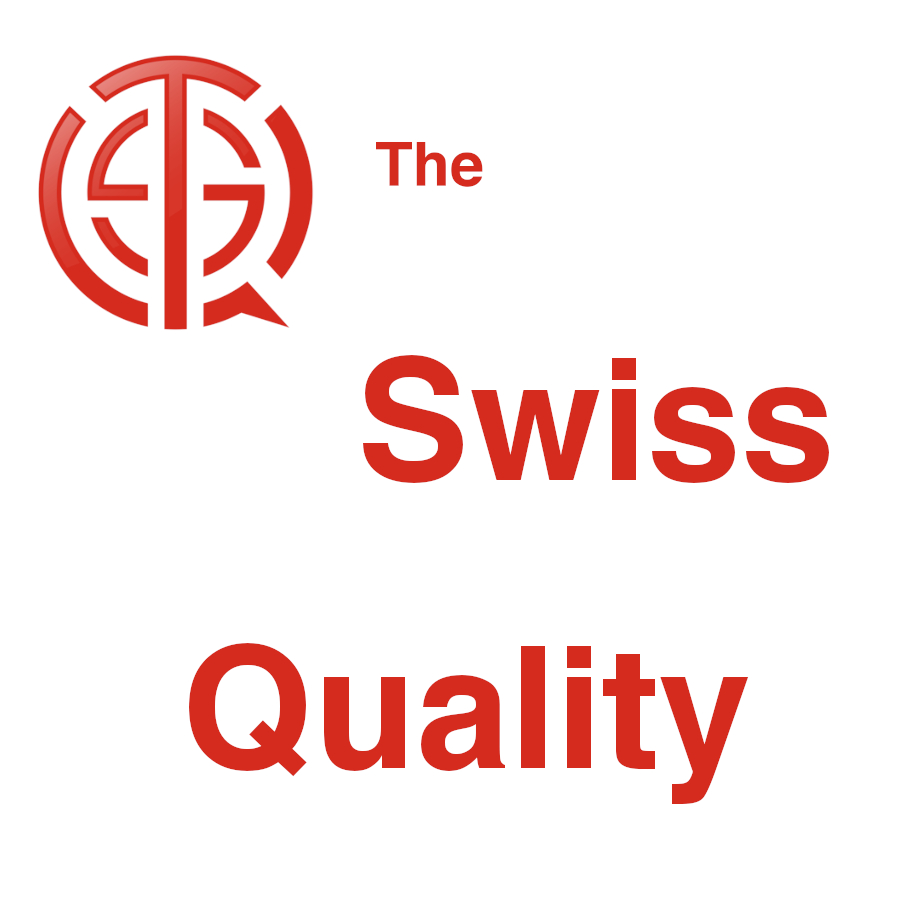Helen Yu: Pioneering Digital Transformation and Leadership Innovation
In the ever-evolving landscape of technology and business, Helen Yu stands out as a pioneering figure in the field of digital transformation. Known for her expertise in integrating cutting-edge technologies with strategic business solutions, Helen has played a critical role in helping companies achieve operational excellence, scale successfully, and foster customer-centric growth. As the founder and CEO of Tigon Advisory Corp, she has demonstrated a unique ability to translate complex technological concepts into actionable business strategies, making her one of the most influential voices in the industry today.
Helen Yu’s Approach to Digital Transformation: A Focus on Strategy Execution
While many leaders discuss the importance of digital transformation, few are as adept as Helen in ensuring that these transformations succeed. Central to her philosophy is the idea that strategy and execution must be perfectly aligned for businesses to thrive in today’s fast-paced digital economy. For Helen, digital transformation isn’t just about adopting new technologies; it’s about integrating those technologies in ways that solve real-world problems, improve customer experience, and generate long-term business value.
Helen has consistently emphasized that companies often struggle with execution, even when they have a clear vision. To address this, she developed a methodology that focuses on identifying potential disconnects between strategy and execution. This approach ensures that companies not only develop a forward-thinking vision but also have the processes and frameworks in place to bring that vision to life.
Championing Customer-Centric Transformation
A key pillar of Helen’s work is her belief that customer experience should be at the heart of any digital transformation strategy. In her various leadership roles across industries such as technology, healthcare, and telecommunications, Helen has advocated for businesses to rethink how they engage with customers. She urges companies to use data, artificial intelligence (AI), and automation not as ends in themselves, but as tools to enhance customer interactions.
Helen’s work has shown that businesses that succeed in their digital transformation efforts are those that focus on delivering personalized and frictionless customer experiences. Her strategies help businesses understand their customers better, anticipate their needs, and provide them with seamless experiences across all touchpoints.
Insights from Her Book: Ascend Your Start-up
In addition to her leadership at Tigon Advisory, Helen is the author of “Ascend Your Start-up: Conquer the 5 Disconnects to Accelerate Growth”, a book that offers actionable insights for entrepreneurs and business leaders. Based on her experience with both start-ups and large enterprises, the book outlines the common challenges businesses face when scaling and provides a roadmap for overcoming them.
In Ascend Your Start-up, Helen identifies five critical disconnects that often prevent start-ups from realizing their full potential: Vision, Customer, Product, Finance, and Execution. She provides practical strategies for overcoming these disconnects, helping start-up founders align their teams and resources to achieve rapid, scalable growth. The book is not just for start-up founders, but for any leader looking to build a resilient, customer-focused business in today’s competitive market.
What makes Ascend Your Start-up particularly valuable is Helen’s ability to blend high-level strategic insights with practical, real-world advice. Her years of experience in working with diverse companies allow her to pinpoint the nuances that differentiate successful transformations from failed ones. For business leaders facing the daunting task of scaling their organizations, her book serves as both a guide and a source of inspiration.
Advocate for Diversity and Inclusion
Another important aspect of Helen’s work is her advocacy for diversity and inclusion in the tech industry. As one of the few women leaders in a male-dominated field, she has been vocal about the need for more women and minorities in leadership roles within technology and business. Helen believes that diverse teams lead to more innovation, and that creating inclusive work environments is essential for businesses to stay competitive.
Her advocacy extends beyond just speaking on these issues; she actively works to foster environments where diverse voices are heard and valued. Helen mentors young women and underrepresented groups, helping them navigate the challenges of the tech industry and encouraging them to pursue leadership roles.
Impact on Emerging Technologies
Helen’s influence isn’t limited to digital transformation in its traditional sense. She is deeply involved in the broader tech landscape, particularly in areas like AI, cybersecurity, IoT (Internet of Things), and blockchain. Her thought leadership often explores the impact of these emerging technologies on businesses, and she provides insights on how organizations can leverage them to stay ahead of the competition.
As businesses increasingly adopt AI and IoT technologies, Helen has emphasized the importance of securing digital infrastructures. She frequently discusses the need for companies to balance innovation with security, especially as cyber threats become more sophisticated. In this regard, she serves as a critical voice advocating for a proactive approach to cybersecurity in an age of digital transformation.
A Vision for the Future
Looking ahead, Helen continues to be a thought leader in shaping the future of business and technology. Through her leadership at Tigon Advisory, her book, and her numerous speaking engagements, she remains at the forefront of discussions on how businesses can adapt and thrive in the digital age.
Helen’s ability to merge technological innovation with customer-centric strategies makes her a unique figure in the world of digital transformation. Her insights have helped countless organizations not only survive but thrive in a time of rapid technological change. Whether she’s advising Fortune 500 companies or mentoring the next generation of tech leaders, Helen Yu’s impact on the industry is undeniable.
Helen Yu’s influence in the digital transformation space extends far beyond her role as the CEO of Tigon Advisory. Her dedication to aligning strategy with execution, her focus on customer-centric transformation, and her advocacy for diversity in the tech industry all contribute to her status as a leading figure in the business world. “Ascend Your Start-up” is a testament to her knowledge and experience, offering practical advice to business leaders at every stage of growth.
As businesses continue to navigate the complexities of digital transformation, Helen Yu’s thought leadership will undoubtedly remain critical to their success. Her forward-thinking approach, coupled with her deep understanding of emerging technologies, positions her as a key influencer in shaping the future of business.
For those interested in learning more from Helen, she frequently shares insights on her LinkedIn profile, where she continues to inspire and guide the global business community.
Helen Yu is the author of the book titled “Ascend Your Start-up: Conquer the 5 Disconnects to Accelerate Growth”. It provides valuable insights for entrepreneurs and business leaders looking to navigate the challenges of scaling a business. The book focuses on five key disconnects that can hinder start-up growth: Vision, Customer, Product, Finance, and Execution. Helen draws from her extensive experience working with both Fortune 500 companies and start-ups to offer practical, actionable advice for overcoming these disconnects and achieving scalable, sustainable success.
Key Themes in Ascend Your Start-up
In Ascend Your Start-up, Helen Yu delves into the complex journey that many start-ups face as they transition from early-stage ventures to established businesses. The book is structured around five main disconnects that often block a start-up’s growth trajectory:
- Vision Disconnect: Helen emphasizes the importance of aligning a company’s vision with its execution. A clear and compelling vision is essential, but equally important is ensuring that this vision is communicated effectively to the entire team and aligned with business objectives.
- Customer Disconnect: A central theme in the book is understanding and prioritizing the customer. Helen argues that many start-ups fail because they don’t adequately understand their customers’ needs. She advocates for a customer-centric approach that uses data and feedback to refine products and services.
- Product Disconnect: Helen highlights the challenge of developing a product that truly resonates with the market. Start-ups must continuously iterate and innovate to ensure that their product solves real problems for their customers. Her advice emphasizes the need to balance innovation with practicality.
- Finance Disconnect: Securing funding and managing resources effectively is a challenge for any start-up. Helen provides strategies for ensuring that financial resources are aligned with the company’s goals and growth plans, helping businesses avoid common financial pitfalls.
- Execution Disconnect: Finally, Helen explores the gap between strategy and execution, which she believes is where many start-ups falter. She provides guidance on building teams, managing resources, and creating systems that ensure effective execution of business strategies.
Why Ascend Your Start-up Is a Must-Read
Helen’s book is not just theoretical; it’s filled with real-world case studies, practical advice, and frameworks that can help entrepreneurs overcome the most common challenges in scaling their businesses. Whether you’re an early-stage start-up founder or a leader in a high-growth company, Ascend Your Start-up offers a roadmap for navigating the complexities of growth while maintaining a clear focus on long-term success.
The book’s focus on execution sets it apart from other entrepreneurial guides, as Helen repeatedly underscores the importance of operational excellence. It’s not enough to have a great idea or even a solid customer base—success comes from being able to execute your vision effectively at every stage of growth.
Incorporating Helen Yu’s book, Ascend Your Start-up, into discussions about her broader influence on digital transformation and business leadership is essential. The book encapsulates much of her expertise in helping companies navigate the intricacies of scaling, while also emphasizing her trademark focus on aligning strategy with execution and keeping the customer at the center of all business decisions.
Helen’s book is a reflection of her approach to leadership and digital transformation, making it a valuable resource for anyone looking to grow their business in a fast-paced, technology-driven world.
However, yes no book is without its limitations, and offering a balanced critique of Ascend Your Start-up by Helen Yu will provide a more rounded view for readers. Here’s a critique of the book that acknowledges its strengths while also addressing some of the potential shortcomings:
Critique of Ascend Your Start-up by Helen Yu
Ascend Your Start-up is a well-researched and practical guide for entrepreneurs and leaders looking to scale their businesses, and it presents a structured roadmap to overcome common challenges. However, like any book, it has its limitations, which may affect its applicability to different audiences or business contexts.
Strengths of the Book
- Actionable Frameworks: One of the major strengths of Ascend Your Start-up is its practical approach. Helen Yu’s focus on the five key disconnects (Vision, Customer, Product, Finance, Execution) provides a clear structure that entrepreneurs can follow to diagnose and address issues as their companies grow. The emphasis on execution—bridging the gap between strategy and action—is particularly valuable for start-up founders who often struggle to scale their businesses beyond the initial stages.
- Customer-Centric Philosophy: Helen’s emphasis on understanding customer needs and making them the focal point of product development and business strategy is a critical takeaway. Her real-world examples and case studies help illustrate how successful companies prioritize customer experience, making her advice applicable across industries.
- Blend of Strategy and Execution: The book excels in explaining the importance of not just having a grand vision but also executing that vision effectively. Many start-up books focus on the “big idea,” but Ascend Your Start-up offers tangible advice on operational processes, team management, and financial discipline—all critical for long-term success.
Areas for Improvement
- Generalized Solutions for Specific Problems: One critique of the book is that it provides a relatively broad framework that may not be as actionable for start-ups facing very specific, niche challenges. While the five disconnects (Vision, Customer, Product, Finance, Execution) cover many common issues, the solutions offered may not delve deeply enough into the nuanced needs of different types of businesses or industries. For instance, highly technical or regulatory-driven industries may require more specialized advice, and some readers may find the book’s general approach too high-level for their unique challenges.
- Limited Focus on Early-Stage Start-ups: While the book is intended to help start-ups scale, some readers might feel that it caters more to businesses that have already reached a certain level of growth. The advice on execution and product management, for example, may be more relevant to businesses with established teams and some degree of market traction. Early-stage founders who are still grappling with basic issues like product-market fit or fundraising might find the advice less applicable to their immediate concerns.
- Emphasis on Execution over Innovation: Another point that some readers might view as a limitation is the heavy emphasis on execution over innovation. While execution is crucial, especially for scaling businesses, there’s a risk of underplaying the importance of continuous innovation and adaptability. In fast-moving industries, where technologies or customer preferences change rapidly, execution alone might not be enough to maintain a competitive edge. More focus on how start-ups can remain innovative as they scale could make the book more comprehensive.
- Cultural and Geographical Considerations: Ascend Your Start-up is primarily focused on U.S.-based or Western start-up ecosystems, which may not account for the specific challenges faced by entrepreneurs in different cultural or regulatory environments. Start-ups in emerging markets, for example, may face very different obstacles related to funding, market access, or regulatory hurdles, and the solutions provided in the book may not fully address those complexities.
- Repetitiveness: At times, the book can feel repetitive, especially when emphasizing certain key points about strategy and execution. While repetition can be useful for reinforcing important concepts, some readers might feel that certain sections could be more concise, allowing for a deeper exploration of other topics, such as leadership development or long-term innovation strategies.
Ascend Your Start-up by Helen Yu: A Valuable Yet Not Comprehensive Guide
Ascend Your Start-up is undoubtedly a valuable resource for entrepreneurs who are navigating the difficult transition from start-up to scale-up. Helen Yu’s practical advice on aligning vision with execution, understanding customer needs, and managing growth is both insightful and actionable. However, the book does have its limitations, particularly for readers seeking highly specialized or industry-specific advice.
While the structured framework of addressing the five key disconnects is beneficial, some readers may find the solutions too generalized for their specific challenges. Additionally, early-stage start-up founders or entrepreneurs operating in non-Western markets may need to look beyond Ascend Your Start-up for more tailored guidance.
Overall, the book excels at providing a roadmap for operational excellence and scalability but could benefit from a broader focus on innovation, industry-specific challenges, and more diverse business environments.









